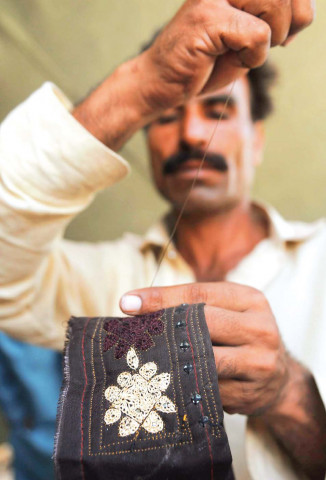After the floods come the waves of depression
Psychologists warn that the waves of depression will be higher when these survivors head back home.

After the floods come the waves of depression
Head of Psychiatry at Jinnah Postgraduate Medical Centre (JPMC) Professor Iqbal Afridi said that hundreds of thousands of flood survivors are already beset with psychological problems. The need for counseling and treatment is urgent, he said.
Elderly people, children and pregnant women are the most vulnerable when it comes to trauma and depression. The government has to appoint expert psychiatrics in every relief camp, advised Afridi.
He said the number of reported cases of mental illness in relief camps is constantly rising. The most challenging phase will come when these people go back to their villages and see the destruction of their houses, shops, businesses and lands in all their terrible physicality.
Rescuing the affected people was just the first hurdle in a difficult task ahead, he said, adding that the next step is rehabilitation, including psychological rehabilitation of survivors.
What makes it worse
After having suffered near-death encounters, loss of life and property and displacement, these people are now living in morbid conditions in relief camps. The survivors have no jobs, barely any recreation so they spend their days and nights in idle depression, said Afridi. They think obsessively of all that they have lost and their bleak future, which further deteriorates their mental health.
He said the rate of mental diseases has already been on a sharp rise in Pakistan.
Behavioural disorders resulting from these diseases include a decrease in tolerance.
This is why people are angrier and more inclined to break into fights over petty issues. He also termed these disorders as part of the reason behind increased thefts and crimes in relief camps.
How to make it better
Afridi suggested that people in camps should be involved in constructive activities. Those who can read or write can start teaching other people. “Reading the holy Quran can also prove very beneficial since it can keep a lot of people, especially children and young people, busy and give them the satisfaction that they are doing something worthwhile,” he added.
In order to deal effectively with the task of psychological rehabilitation, we need large-scale counseling of affected people, he said. Those who require medicine must be provided the necessary drugs. He stressed the importance of continued relief work as flood survivors head back home. If they do not get basic support such as food, clean water and medicines, their mental trauma and depression is likely to intensify, he warned.
Dr Razaur Rehman, Assistant Professor of Psychiatry at the Civil Hospital Karachi (CHK), said that the health policymakers should take remedial steps right away.
He said the CHK is already providing counseling and treatment facilities to patients who have sought help there.
Psychological effects on children
Pakistan Medical Association (PMA) ex-secretary general Dr Qaiser Sajjad said the negative effects of displacement and hardships of relief camps would cast lifelong negative effects, particularly on children.
The fact that these children will not be able to resume normal lives even after they head back to their homes is only going to worsen the situation. Since hundreds of schools have been destroyed in the floods, they will not be able to continue with their education for a long time, said Dr Sajjad.
Dr Atique, in charge of the psychiatry department at the National Institute of Child Health (NICH), said that the young minds of children are not strong enough to sustain the shock of displacement and the resultant hardships and problems.
Loss of appetite, headache, abdominal pain and volatile temper are the first signs of psychological trauma in children. He said the affected children should be provided swift medical help including counseling.
Effects on women
Meanwhile, the hard life and loss of privacy in relief camps is taking its toll on women the most, especially those who are pregnant. Dr Zahra Khan Niazi, a psychiatrist at the JPMC, said that depression and anxiety can cause pregnant women to lose too much weight and this can affect the health of their babies.
Sindh Health Secretary Syed Hashim Raza said the government is trying its best to help flood survivors. The health department is fully aware of the possible mental trauma of flood survivors when they start returning home in the weeks to come, he said. More than 100 psychiatrists have already been posted in the medical camps being run by the provincial health department. Meanwhile, 527 fixed and 162 mobile medical camps of the department are providing all type of medical assistance including counseling to flood survivors in Sindh, he added.
Published in The Express Tribune, September 23rd, 2010.



















COMMENTS
Comments are moderated and generally will be posted if they are on-topic and not abusive.
For more information, please see our Comments FAQ